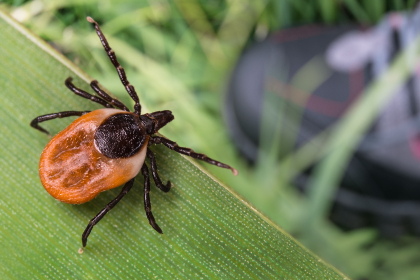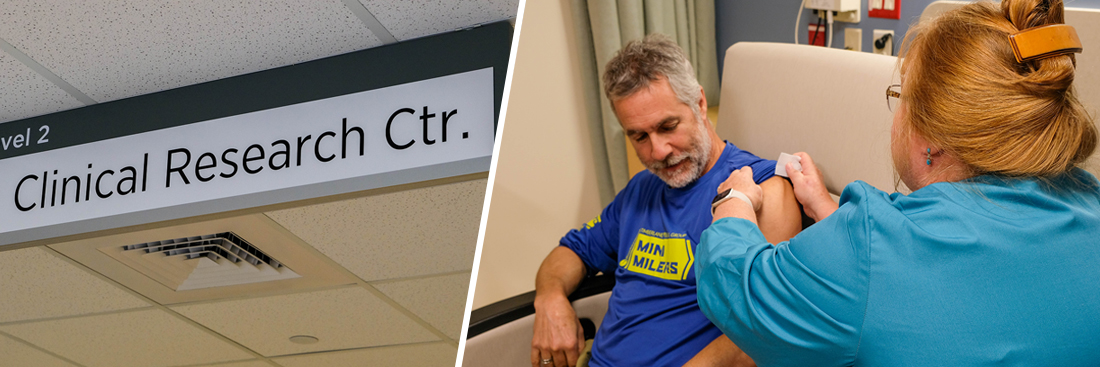There are currently no approved vaccines available to prevent Lyme disease in humans, but one may be on the way. UVM’s Vaccine Testing Center recently launched a clinical study to investigate the efficacy, safety, and immunogenicity of a Lyme disease vaccine.

The blacklegged tick, or deer tick, carries the bacteria that causes Lyme disease. Adult ticks are the size of a sesame seed. (Stock image)
Anyone who spends time outdoors can be at risk for Lyme disease. This common illness is caused by bacteria found in ticks that live in wooded areas or fields with tall grass and brush.
“Bites from infected ticks can transfer the bacteria to humans and cause a characteristic rash, fevers, and fatigue. It can lead to very serious complications including cardiac disease, neurologic disease, and musculoskeletal disease,” said Kristen Pierce, M.D., professor of medicine at the UVM Larner College of Medicine and infectious disease specialist at the University of Vermont Medical Center.
There are currently no approved vaccines available to prevent Lyme disease in humans, but one may be on the way. Pierce is principal investigator for a worldwide Phase 3 clinical study at the Vaccine Testing Center at the Larner College of Medicine and the University of Vermont Medical Center to examine the efficacy, safety, and immunogenicity of an investigational Lyme disease vaccine. The study, known as the Vaccine Against Lyme for Outdoor Recreationists (VALOR) trial, is sponsored by Pfizer and is enrolling participants five years of age and older who live in or often visit outdoor areas that may expose them to ticks.
The study is being conducted at up to 50 sites located in areas where Lyme disease is highly endemic, including Finland, Germany, the Netherlands, Poland, Sweden and the United States. In the past 30 years, the incidence of Lyme disease in the U.S. has doubled, and because of climate change, ticks are expanding their range. Northeastern states including Vermont, New York, New Hampshire, and Maine have experienced the largest increases in reported cases of Lyme disease, according to surveillance data from the Centers for Disease Control and Prevention. In Vermont, Lyme disease is the most reported tickborne disease.
The VALOR research study is evaluating if an investigational vaccine is safe and effective for preventing Lyme disease in people who have been exposed through tick bites. The current study, which is a Phase 3 trial, builds on data from the Phase 2 studies that demonstrated strong immunogenicity in adults and children.
“The local enrollment into this international trial will contribute to the global effort to combat Lyme disease and its impact on our community and beyond,” said Larner College of Medicine Dean Richard Page, M.D., adding that the vaccine trial at UVM highlights the benefit of having a world‐class, academic medical center with a Vaccine Testing Center in Vermont.
The study will last about 30 months. Participants will be randomly assigned to receive three doses of the vaccine or a saline placebo as a primary vaccination series followed by one booster of the vaccine or saline placebo. As part of the study, participants will have at least seven in‐clinic study visits at UVM Medical Center in Burlington, including four or five visits with blood draws. Volunteers receive up to $1,145 in compensation if all visits are completed.
The study began recruiting participants in September and available spots filled quickly, meeting capacity for volunteers in all age groups by the last week of October. Contact the study team at 802-656-0013 or UVMVTC@UVM.EDU for more information.

A volunteer participates in the Lyme disease vaccine clinical trial in the Clinical Research Center at the Larner College of Medicine.